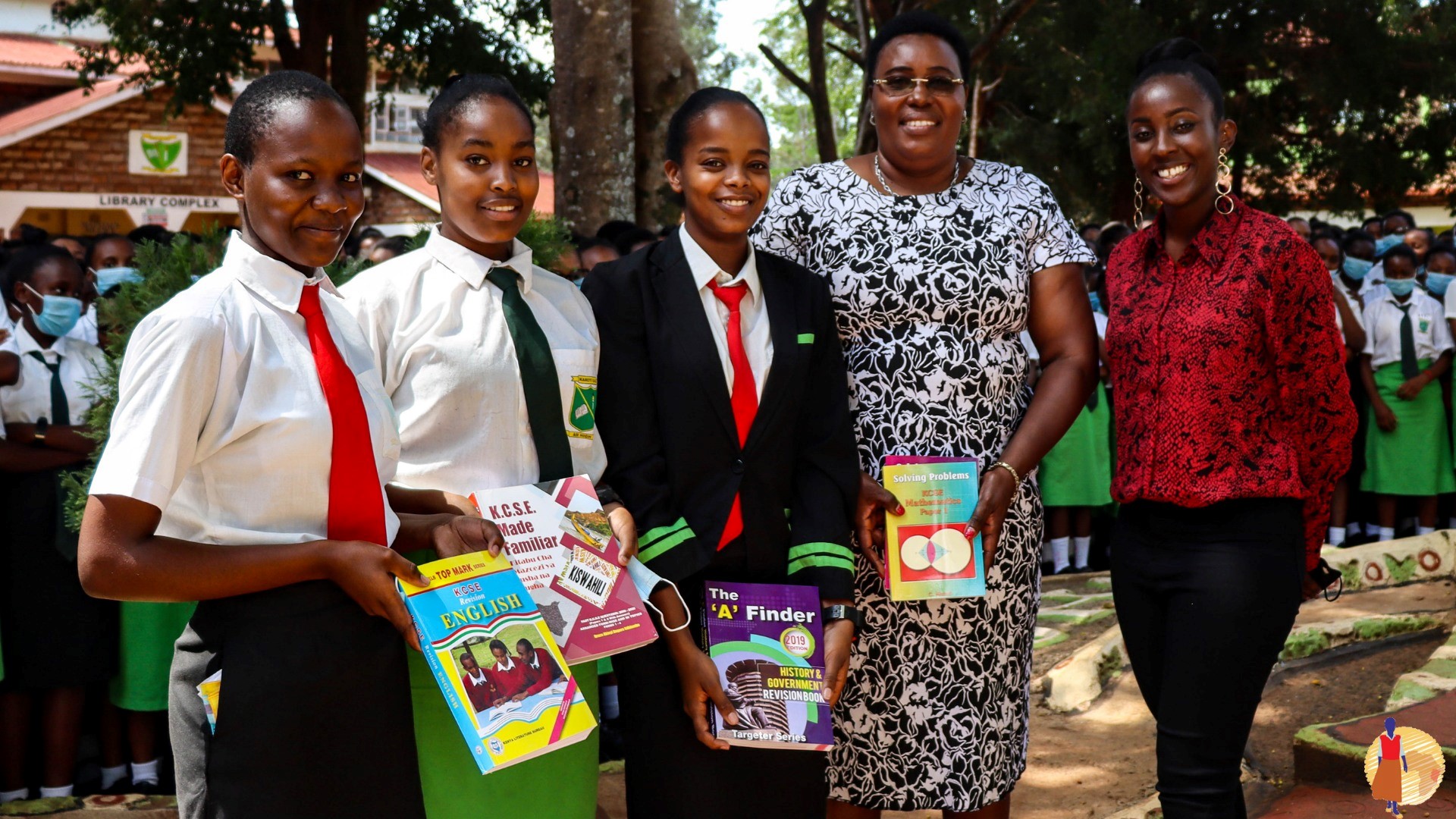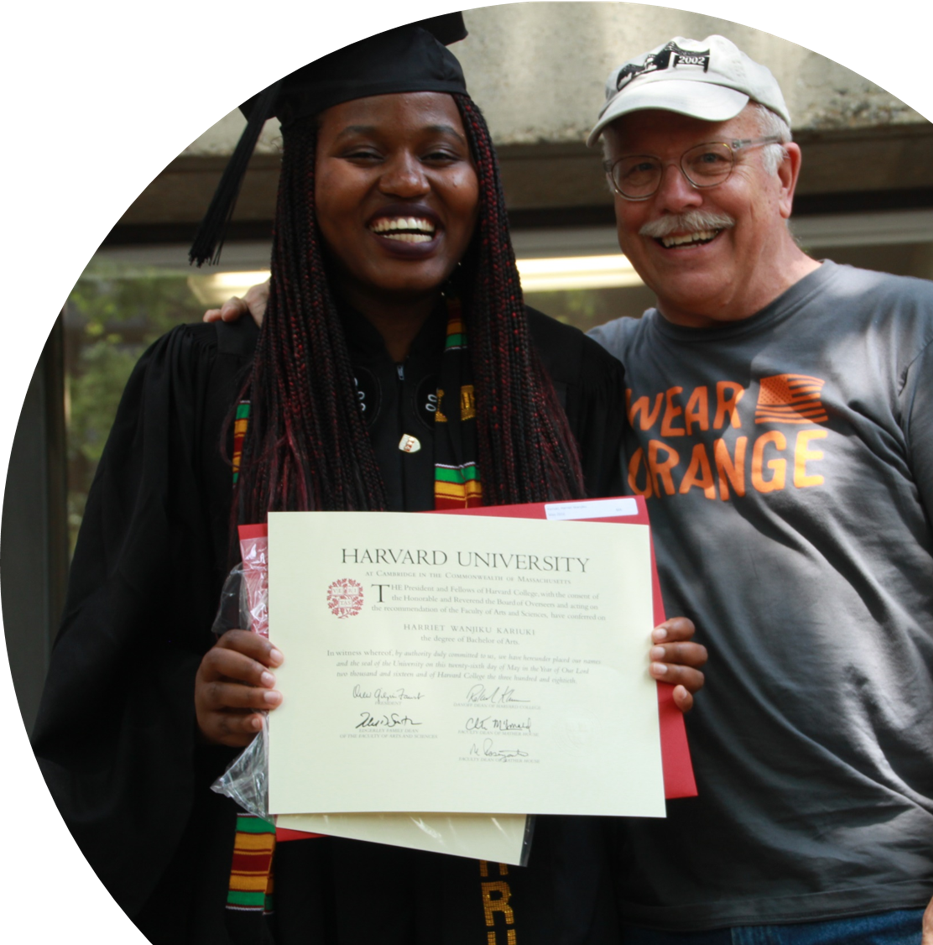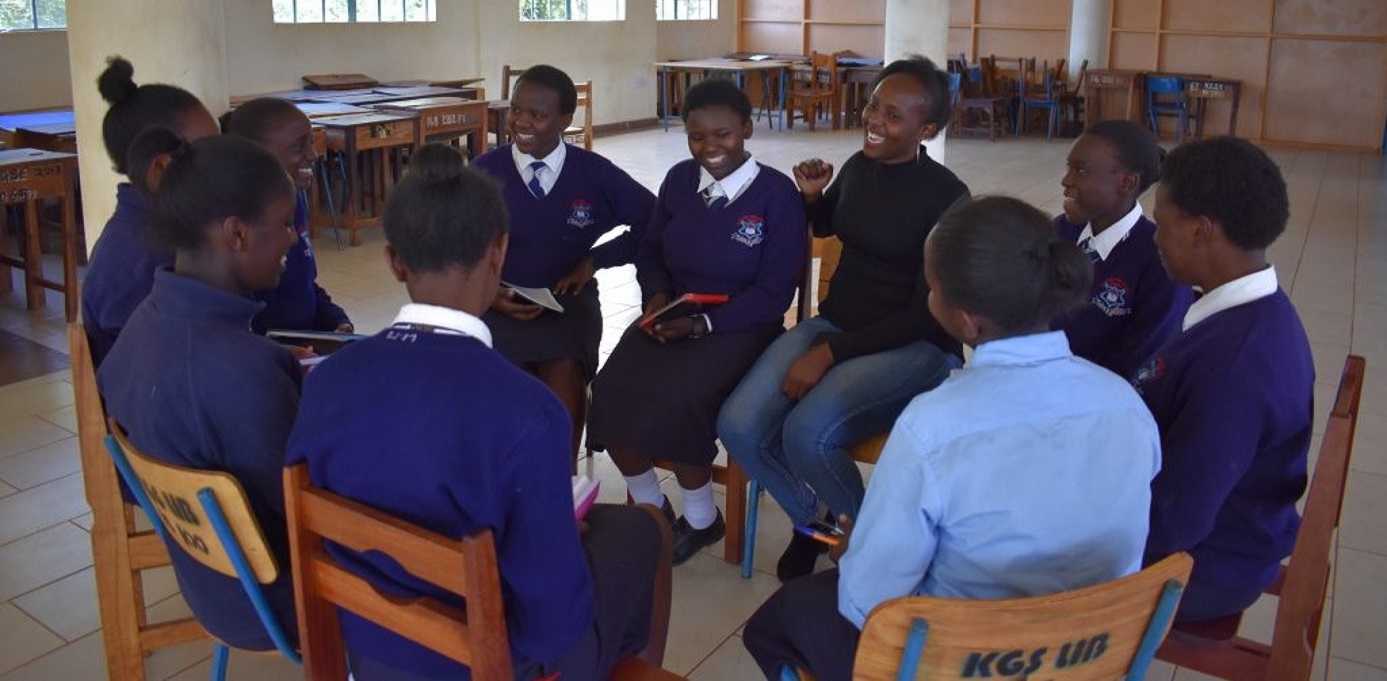
Mission
Growth Through Learning (GTL) supports education and development in East Africa by providing full secondary education scholarships for exceptional young women in Kenya, Uganda, and Tanzania who would otherwise be unable to afford an education beyond primary school. GTL encourages cross-cultural exchange of information and ideas, especially promoting women’s empowerment in East Africa. Educate a girl and she will do the rest.
Life Challenges of the Women Served
The girl scholars served by GTL live in Kenya, Uganda, and Tanzania – all countries in which formal schooling is often out of reach, especially for girls.
For the girls reached by GTL:
- Virtually all come from families that are not in the cash economy. Parents typically are either subsistence farmers, casual laborers, or jobless. There is little likelihood they would have been able to raise the $700 a year to cover school costs.
- Almost half (48 percent) of the GTL scholars either live in single parent households (43 percent) or are orphans (5 percent).
- GTL scholars come from large families. Half of the GTL scholars come from families that have six children. Half of the single parents (more than 80 percent of whom are mothers) have at least five children.
- Until the current generation, most families have not had a history of formal education. Two-thirds of mothers and fathers have no more than a primary school education – and one in six have no formal education at all. However, almost two-thirds of GTL scholars have an older sibling who has at least some secondary education.
Among the challenges faced by families are drought, cattle rustling, and debilitating chronic diseases. Families live on the edge, without health insurance, social security, or other support programs.
The Project
 GTL provides educational scholarships (secondary and post-secondary) for girls and young women of East Africa. The average cost to provide a scholarship is $700 per girl per year. This amount keeps a young girl in school by funding school fees, uniforms, food, books, and supplies. A girl learns how to read and write in both English and her native language and obtains the skills necessary to teach her own children how to add and subtract, understand ideas, and strive for a better future.
GTL provides educational scholarships (secondary and post-secondary) for girls and young women of East Africa. The average cost to provide a scholarship is $700 per girl per year. This amount keeps a young girl in school by funding school fees, uniforms, food, books, and supplies. A girl learns how to read and write in both English and her native language and obtains the skills necessary to teach her own children how to add and subtract, understand ideas, and strive for a better future.
GTL’s philosophy is founded on the premise that it is education, more than anything else, that will help to create a better society and more meaningful way of life. The sponsored girls learn that GTL is concerned with their welfare and that the potential for their empowerment and self-sufficiency is something that only education can provide
The Legacy Grant from Together Women Rise will enable GTL to pay annual high school fees for 30 scholars in 2024.
Direct Impact: 30 girls; Indirect Impact: 192 family members
UN Sustainable Development Goals
![]()
![]()
![]()
How the Grant Will be Used

Evidence of Success
GTL’s history resembles that of Together Women Rise. The two organizations have a long history of partnering to strengthen the opportunities for girls to continue their schooling. This began in 2004, when Together Women Rise (then known as Dining for Women), sponsored the secondary education of Maria Garetti, who lives in Uganda, for $730. She later graduated with a nursing degree. Together Women Rise continued grants for GTL in 2005 ($1,000) and in 2006 ($5,500), 2007 ($8,274), and 2008 ($12,660). By 2008, 46 young women who received scholarship support from Together Women Rise, had graduated from vocational institutions.
Since 1997, more than 2,000 GTL scholars have graduated from high school, tertiary institutions, and universities. They are mainly nurses, teachers, accountants, and business owners.
“These are young women who feel empowered and assertive within their families and communities, as a result of their increasing earning power, better economic activities, and the support of a strong GTL Alumnae network,” says Wanjiku K Mwangi, GTL’s Executive Director.
The benefits of improving educational opportunities for girls are profound. According to GTL:
- Women’s education and status within the household contributes more than 50 percent to the reduction of child malnutrition
- An extra year of schooling is associated with a 10 percent increase in girls’ wages
- A child of a literate mother is 50 percent more likely to live past age 5
- Older sisters greatly impact their younger siblings’ educational attainment
- Higher levels of maternal education are associated with reduced mental health problems in their children
- Increased female literacy is associated with reduced HIV/AIDS prevalence
- An additional 18 years in school reduced maternal mortality by 34 percent in Kenya
- Universal completion of secondary education would reduce the national fertility rate in Tanzania by 21 percent
- Girls with secondary school education are 6 times less likely to marry as children.
Teresa Mutahi is an Associate Instructional Professor and Biology Major Undergraduate Coordinator at the University of Florida. She is also a GTL pioneer alumna. GTL sponsored her secondary education from 1998 to 2001. Upon finishing secondary school at Githunguri Girls, she continued to study at Moi University, where she graduated top of her class in 2007. She was awarded a scholarship to continue her studies at the University of Louisiana, where she earned a master’s degree in biology and a PhD in Science and Mathematics.
Voices of the Girls
A GTL scholar from Uganda, Diana Lubega, says, “I was able to become a qualified nurse through the support of Together Women Rise. For sure I would not be what I am now. I live a better life.”
About the Organization
A two-week safari to the Serengeti in the summer of 1996 turned into more than a pleasure trip for Roger L. Whiting, a life insurance representative and financial planner. After meeting a young woman who was working to support her many younger siblings – and who had never had the opportunity to go to secondary school herself, he returned home and began to research the plight of women and girls of East Africa who are denied basic educational opportunities because of insufficient family income. Even primary school can be prohibitively expensive in a region where many people live on $1 per day. Whiting founded Growth Through Learning in 1997 and received non-profit status in 1998.

